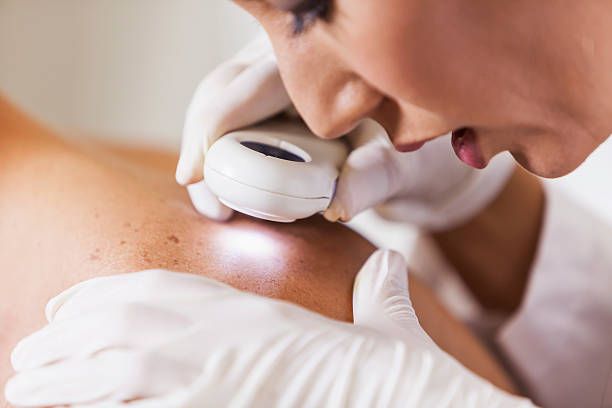
Study Supports Off-label Use of Infliximab Biosimilar in HS
Hidradenitis suppurativa (HS) is a difficult-to-treat skin condition that has responded to infliximab, although payer support in this setting is often lacking.
Investigators have reported equivalent success in treating the skin condition hidradenitis suppurativa (HS) with an infliximab biosimilar (Avsola) vs originator infliximab (Remicade). Treatment of HS with infliximab is an off-label use, and authors of this study said more data are needed to help support payer acceptance of infliximab in this setting.
The tumor necrosis factor (TNF) inhibitor adalimumab is the only drug currently approved by the FDA for the treatment of HS, a chronic inflammatory skin condition resulting in painful lumps that predominantly affects women and Black individuals. Infliximab is another TNF inhibitor that has shown value in treating HS, and it generally is used off-label.
TNF inhibitors are successful in this disease type because they help to control inflammation. Other treatments used for HS include surgery, laser treatment, antibiotics, and immunomodulatory therapies. Use of infliximab biosimilars in this setting may offer cost savings, but patients may not be able to obtain payer coverage.
Investigators conducted a retrospective study of 34 patients treated at a dermatology specialty clinic at University of North Carolina at Chapel Hill. The choice of infliximab originator or biosimilar was based on financial considerations and payer coverage. To be eligible, patients had to have received either an infliximab originator or biosimilar for at least 10 weeks.
The primary end point was at least a 50% decrease in inflammatory nodule count without any increase in the number of abscesses or draining sinuses. Secondary end points included International Hidradenitis Suppurativa Severity Scoring System (IHS4) score, Dermatology Life Quality Index (DLQI) score, and mean visual analog scale pain score, among others.
Of patients included in the study, 20 received originator infliximab, and 14, biosimilar. Investigators said there were no significant differences in IHS4 scores and DLQI values between the 2 treatment groups. In the originator infliximab group, there was a statistically significant difference in visual analog scale mean pain scores between the initial and final available visits (6.12 vs 4.00; 95% CI, 4.12-5.94; P = .03). On this measure, a significant difference was not found for the biosimilar group (6.82 vs 6.00; 95% CI, 4.36-6.38; P = .49).
Investigators observed no significant difference between patients who achieved an HS clinical response: 71% in the biosimilar group vs 60% in the originator group (P = .47). The incidence of adverse events was limited to the originator group. An infusion reaction and elevated liver enzymes necessitated treatment discontinuation for 2 patients.
Patients who received the originator infliximab had IHS4 before- and after-treatment scores of 21.36 and 6.86 (P = .004) respectively, and DLQI scores of 22.64 and 17.17 (P = .04). The comparable HIS4 scores for the biosimilar cohort were 23.70 and 10.80 (P = .01), and the respective scores for the DLQI in the same group were 22.19 and 16.38 (P = .02).
Authors of the study declared it a success. “The significant and similar improvements associated with primary and secondary outcome measures in patients treated with [originator] and [biosimilar infliximab] are consistent with those in previous studies of [infliximab] administration for treatment of HS,” they wrote.
The investigators also noted that response rates from both forms of treatment in this study were “slightly higher” than those achieved with adalimumab in the phase 3 PIONEER trial, which evaluated safety and efficacy of adalimumab in patients with moderate to severe HS. They said tolerance of infliximab and clinical response were good for the most part.
“The data suggest that receipt of [originator or biosimilar infliximab] is associated with similar responses in the treatment of HS,” the authors concluded. However, they noted that the lack of copays or other financial assistance for use of biosimilars in off-label settings such as HS is “a major limitation to their clinical use.” More evidence supporting the use of infliximab in HS might help to improve access, they said.
Reference
Westerkam LL, Tackett KJ, Sayed CJ. Comparing the effectiveness and safety associated with infliximab vs infliximab-abda therapy for patients with hidradenitis suppurativa. JAMA Dermatol. 2021. doi:10.1001/jamadermatol.2021.0220
Newsletter
Stay ahead of policy, cost, and value—subscribe to AJMC for expert insights at the intersection of clinical care and health economics.










